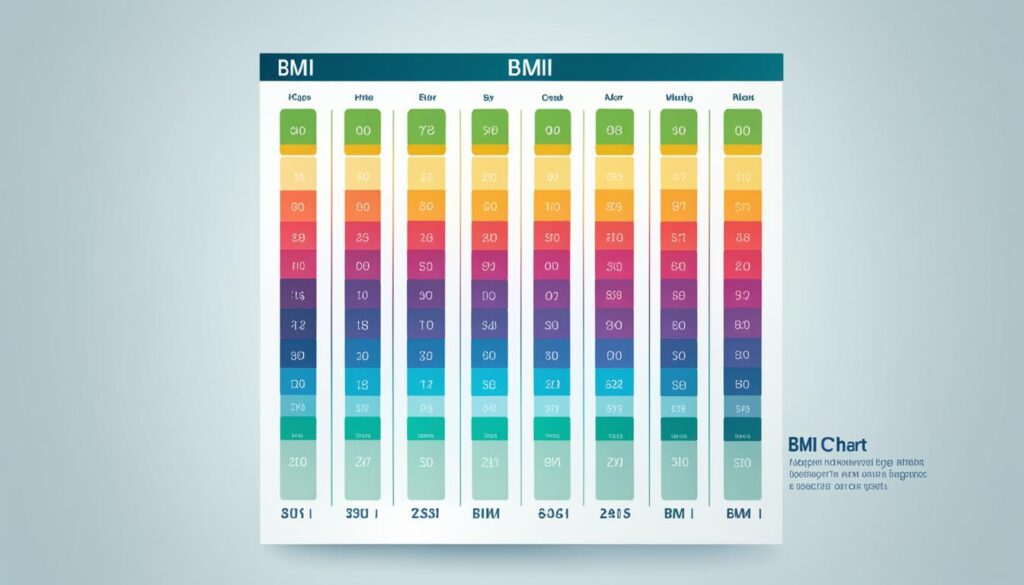Are you tired of struggling to shed those pesky pounds, despite your best efforts? Look no further than the world of over-the-counter (OTC) weight loss solutions. From innovative medications to natural supplements, the options for effective, safe, and accessible weight management are more extensive than ever before1. In this comprehensive guide, we’ll dive deep into the science, benefits, and considerations behind one of the most popular OTC weight loss aids – Alli.
Key Takeaways
- Alli is an FDA-approved, over-the-counter weight loss medication containing the active ingredient orlistat.
- Alli works by blocking the absorption of dietary fat, leading to modest weight loss when combined with a calorie-restricted diet and regular exercise.
- In studies, more than 40% of people taking Alli lost 5% or more of their body weight within a year.
- Alli can reduce the absorption of certain fat-soluble vitamins, so it’s important to take a multivitamin supplement.
- Alli is not recommended for individuals at a healthy weight or those with certain medical conditions.
What is Alli?
Alli, the over-the-counter version of the prescription drug orlistat, is an FDA-approved weight loss medication for overweight adults aged 18 and above with a body mass index (BMI) of 25 or more2. Its active ingredient, orlistat, works by blocking the absorption of some of the fat from the foods you eat, preventing it from being stored in your body2.
Alli’s Active Ingredient and Mechanism
Orlistat, the active ingredient in Alli, is classified as a peripherally acting antiobesity agent3. It works by inhibiting lipases, the enzymes responsible for breaking down and absorbing dietary fats, which can lead to a reduction in the amount of fat absorbed by the body23.
FDA Approval and Dosage Instructions
The FDA has approved Alli for use in overweight adults 18 and older with a BMI of 25 or more2. The recommended dosage is one 60-milligram Alli capsule taken with a fat-containing meal up to three times a day23. Users are advised to take Alli with each main meal that contains no more than 30% of calories from fat, and the total daily fat intake should not exceed 30% of the total caloric intake3.
How Alli Promotes Weight Loss
Alli, an over-the-counter weight loss aid, promotes weight loss by inhibiting the activity of the enzyme lipase, which is responsible for breaking down dietary fat4. By blocking the action of lipase, Alli prevents about 25% of the fat you eat from being absorbed by your body, causing it to be eliminated through bowel movements instead4. This mechanism of action, known as “fat blocking,” is the key to Alli’s weight loss benefits.
Blocking Fat Absorption
Alli is designed to target and reduce the absorption of dietary fat, leading to a decrease in the number of calories your body can utilize4. Clinical studies have shown that Alli can help reduce visceral fat, a type of fat that has been linked to health problems like type 2 diabetes, high blood pressure, heart disease, and stroke4.
Potential Weight Loss with Alli
In clinical trials, more than 40% of people taking Alli while following a calorie-restricted diet and increasing physical activity lost at least 5% of their body weight within a year4. This level of weight loss is considered clinically meaningful and can help reduce the risk of obesity-related health issues4. Alli is recommended for overweight adults aged 18 and above who follow a low-calorie, low-fat diet4.
To determine if one is overweight, it is suggested to calculate the Body Mass Index (BMI), with a BMI of 25 to 29.9 being classified as overweight4. Alli is usually taken three times a day, preferably with meals containing small amounts of fat or within an hour after such meals4. A diet low in fat and calories is advised when taking Alli, with recommendations for up to 30% of calories per meal coming from fat4.
It is important to note that Alli users are recommended to take a daily multivitamin due to potential difficulty in absorbing fat-soluble vitamins A, D, E, K, and beta carotene4. Additionally, it is essential to consult with a healthcare provider before taking Alli if other medications, such as blood thinners, diabetes or thyroid medications, or weight loss drugs, are being consumed, as interactions may occur4.
“Alli, an OTC weight loss solution, contains 60 mg of orlistat, while the prescription version Xenical contains 120 mg.”5
The FDA approved orlistat, the active ingredient in Alli, in 1999 for weight loss aid in individuals with a BMI over 30 or over 27 with risk factors, such as high blood pressure or diabetes5. Orlistat has been shown to reduce dietary fat absorption by about 30%5. In a study, orlistat combined with diet and exercise resulted in an average weight loss of 23.3 pounds in the first year compared to 13.6 pounds in the placebo group5.
The XENDOS study demonstrated a 37% reduced risk of developing type 2 diabetes with 4-year orlistat use5. Orlistat has also been associated with reductions in blood pressure and cholesterol levels in overweight or obese individuals5. However, common side effects of Alli include digestive symptoms, impaired nutrient absorption, increased risk of kidney injury, and potential drug interactions56.
Side Effects and Precautions
When considering Alli, it’s crucial to be aware of the potential side effects and precautions associated with the medication. The most common side effects experienced by users are related to the undigested fats passing through the digestive system, including stomach pain, oily discharge, gas, oily stools, and more frequent bowel movements7. These side effects are generally mild and tend to lessen over time with proper use of the drug.
Alli should be avoided by individuals with certain medical conditions, such as diabetes, thyroid disorders, heart disease, or a history of gallbladder problems, kidney stones, or pancreatitis8. It’s also not recommended for those who are already at a healthy weight, have had organ transplants, or are pregnant or breastfeeding8.
Common Side Effects of Alli
- Stomach pain
- Oily discharge
- Gas
- Oily stools
- Increased bowel movements
When to Avoid Alli
- Individuals with diabetes
- Individuals with thyroid disorders
- Individuals with heart disease
- Individuals with a history of gallbladder problems
- Individuals with a history of kidney stones
- Individuals with a history of pancreatitis
- Individuals who are already at a healthy weight
- Individuals who have had organ transplants
- Pregnant or breastfeeding women
“The common side effects of Alli include changes in bowel function, such as fatty/oily stool, oily spotting, intestinal gas with discharge, and an increased number of bowel movements.”8
It’s important to note that serious side effects, such as symptoms of liver disease and kidney stones, may warrant stopping the medication and seeking medical attention8. Additionally, a very serious allergic reaction to Alli is rare but possible, with symptoms like rash, swelling, dizziness, and difficulty breathing8.
Before starting Alli, it’s crucial to discuss your medical history with your healthcare provider, especially any digestive or gallbladder issues, thyroid problems, kidney disorders, and eating disorders. You should also inform your doctor about all other medications you are taking, as Alli may interact with certain drugs, such as blood thinners, HIV medications, and seizure drugs879.
Incorporating Alli into a Healthy Lifestyle
The Alli weight loss plan is not a standalone solution for shedding pounds. Rather, it is designed to be part of a comprehensive weight management approach that includes a low-calorie, low-fat diet and regular physical activity10. To achieve effective and sustainable weight loss with Alli, individuals must commit to long-term lifestyle changes, such as making healthier food choices, controlling portion sizes, and engaging in regular exercise10.
It’s important to work closely with a healthcare provider to ensure the safe and appropriate use of Alli as part of an individualized weight loss plan10. The Alli program is geared towards overweight adults aged 18 years and older10, and the capsules work with natural enzymes in the body to prevent the digestive system from absorbing some fat calories10.
Users can expect to lose on average 50% more weight with the Alli program compared to dieting alone10, and most of this weight loss typically occurs within the first six months of use10. However, it’s crucial to understand that the Alli program is designed to provide gradual and healthy weight loss results, rather than dramatic overnight changes10.
While the Alli program can be a helpful tool in a weight loss journey, it is essential to maintain a balanced, low-calorie diet and engage in regular physical activity to achieve sustainable results10. By incorporating Alli into a healthy lifestyle, individuals can maximize their chances of success and reach their weight loss goals10.
“The Alli program is not a magic pill; it requires a commitment to long-term lifestyle changes to be truly effective.”
weight loss over the counter
Beyond the prescription weight loss medication Alli, a wide range of over-the-counter (OTC) weight loss supplements are available. When evaluating these OTC products, it’s crucial to research their active ingredients, safety profiles, and scientific evidence supporting their efficacy11. Realistic expectations are key when using any weight loss aid, as the weight loss achieved is typically modest, often just a few pounds more than with diet and exercise alone11. Sustainable weight loss requires a long-term commitment to lifestyle changes, including a balanced diet and regular physical activity, rather than relying solely on quick-fix OTC solutions.
Evaluating OTC Weight Loss Supplements
OTC weight loss supplements can contain a variety of ingredients, from natural herbs and extracts to synthetic compounds. Some common OTC weight loss supplement ingredients include Conjugated Linoleic Acid (CLA), Bitter Orange, Garcinia Cambogia, Glucomannan, Green Coffee Bean Extract, and Acacia Fiber12. While these supplements may have some modest effects on weight loss, the scientific evidence for their long-term efficacy and safety is often limited or inconsistent12.
Realistic Expectations and Long-Term Commitment
When using OTC weight loss supplements, it’s important to maintain realistic expectations. The weight loss achieved with these products is typically modest, often just a few pounds more than what can be accomplished through diet and exercise alone11. Sustainable weight loss requires a long-term commitment to lifestyle changes, including a balanced, calorie-controlled diet and regular physical activity11. Relying solely on OTC weight loss supplements without addressing underlying dietary and lifestyle factors is unlikely to result in lasting weight management success.
“Sustainable weight loss is a marathon, not a sprint. OTC supplements can provide a small boost, but the real work comes from lifestyle changes that you can stick to in the long run.”
In summary, while OTC weight loss supplements may offer some potential benefits, they should be approached with caution and realistic expectations. The most effective and sustainable weight loss strategies involve a combination of a balanced, calorie-controlled diet, regular exercise, and long-term lifestyle changes11124.
Dietary Supplements for Weight Loss
In addition to Alli, the over-the-counter weight loss medication, there are various dietary supplements marketed for weight loss. These include ingredients like green tea extract, conjugated linoleic acid (CLA), and garcinia cambogia13. However, the safety and efficacy of many of these dietary supplements for weight loss are not well-established, and they may interact with certain medications or have unintended side effects14.
It’s important to consult with a healthcare provider before using any dietary supplements for weight loss, as they may not be suitable for all individuals or may have limitations in their ability to produce sustainable weight loss results13. While some supplements may support metabolism or provide a feeling of fullness, research is ongoing, and there is insufficient evidence to prove the effectiveness of any specific product1314.
Weight loss supplements should not be viewed as substitutes for a healthy diet and regular exercise. Instead, they are meant to support a comprehensive weight loss plan, not replace it13. Consulting a medical professional is essential before using any new weight loss aid to ensure it is suitable for individual needs and does not interact with any existing medications or health conditions1314.
“Dietary supplements are not a magic bullet for weight loss. They should be used with caution and under the guidance of a healthcare provider.”
| Dietary Supplement | Effectiveness for Weight Loss | Safety Concerns |
|---|---|---|
| Orlistat | Modest weight loss | Gastrointestinal side effects |
| Green Tea Extract | Possibly effective | Generally safe, but can interact with medications |
| Conjugated Linoleic Acid (CLA) | Varying effectiveness | Potential side effects, such as gastrointestinal issues |
| Garcinia Cambogia | Insufficient evidence | Potential liver damage, interactions with medications |

In conclusion, while dietary supplements may be marketed as weight loss aids, their safety and efficacy are often not well-established14. Individuals considering the use of such supplements should always consult with a healthcare provider to ensure they are suitable for their specific needs and do not pose any health risks131415.
Lifestyle Changes for Sustainable Results
While weight loss aids like Alli can provide a helpful boost, the key to achieving and maintaining a healthy weight lies in making long-term lifestyle changes16. A balanced, calorie-controlled diet that focuses on nutrient-dense, whole foods and appropriate portion sizes is essential for sustainable weight loss1716. Regular physical activity, such as a combination of cardio and strength training exercises, also plays a crucial role in burning calories, building muscle, and improving overall health16. Incorporating these lifestyle changes, rather than relying solely on weight loss supplements, is the most effective approach for achieving lasting weight loss results16.
Balanced Diet and Portion Control
A balanced diet for weight loss should emphasize nutrient-rich foods like lean proteins, vegetables, fruits, whole grains, and healthy fats17. The recommended daily protein intake for adults is 5-7 ounces, while for children aged 2-8, it’s 2-5.5 ounces17. Additionally, adults should aim for 2-5 cups of vegetables per day, and children aged 9-13 should consume 1-2.5 cups17. Portion control is also crucial, as it helps maintain a calorie-controlled diet and supports sustainable weight loss16.
Regular Exercise and Physical Activity
Exercise for weight loss is a vital component of a healthy lifestyle. The recommendation is to engage in at least 30 minutes of aerobic exercise most days of the week to support weight loss efforts16. Combining cardio with strength training exercises can help burn calories, build muscle, and improve overall fitness16. Establishing a consistent exercise routine and finding activities you enjoy can help you stick to your weight loss lifestyle changes in the long run16.
“The key to sustainable weight loss is not a quick fix, but rather a lifelong commitment to a balanced, healthy lifestyle.”18
By incorporating a balanced diet and regular physical activity into your daily routine, you can achieve sustainable weight loss and improve your overall health and well-being16. Remember, making gradual, sustainable changes is the most effective way to reach your weight loss goals and maintain a healthy weight long-term16.
| Nutrient | Recommended Daily Intake | Good Food Sources |
|---|---|---|
| Protein | 5-7 oz for adults, 2-5.5 oz for children 2-817 | Lean ground beef (20.8 g/100 g)17, Skinless chicken breast (23.2 g/100 g)17, Black beans (21.6 g/100 g)17 |
| Fiber | Oats (10.4 g/100 g)17, Chickpeas (5.9 g/100 g)17, Bananas (2.2 g per banana)17, Brussels sprouts (2.6 g/100 g)17, Beets (2 g/100 g)17, Apples (2 g/100 g)17 | 2-5 cups for adults, 1-2.5 cups for children 9-1317 |
| Healthy Fats | 24-51 g for adolescents 14-1817 | Avocado, nuts, seeds, olive oil, fatty fish |
By making lifestyle changes that focus on a balanced diet and regular exercise, you can achieve sustainable weight loss and improve your overall health and well-being16. Remember, consistency and a supportive environment are key to maintaining these healthy habits long-term161718.
Seeking Professional Guidance
When considering any weight loss solution, including over-the-counter options like Alli, it’s crucial to consult with a healthcare provider. A doctor or registered dietitian can help evaluate your individual health status, provide personalized recommendations, and monitor your progress throughout the weight loss journey19. They can also help you address any underlying health conditions, medications, or other factors that may impact your weight loss efforts, ensuring the safe and effective use of any weight loss aids19.
Consulting with a Healthcare Provider
Seeking professional guidance from a healthcare provider is essential for safe and effective weight loss. They can help you develop a comprehensive plan that addresses your specific needs and goals, taking into account your overall health, lifestyle, and any underlying medical conditions19. Additionally, they can provide valuable insights and support throughout your weight loss journey, monitoring your progress and making adjustments as needed19.
- Your healthcare provider can assess your current health status, including your body mass index (BMI), any existing medical conditions, and any medications you may be taking19.
- They can provide personalized recommendations for a balanced diet, appropriate exercise routines, and the safe use of any weight loss supplements or medications19.
- Regular check-ins with your healthcare provider can help you stay on track, address any challenges, and make necessary adjustments to your weight loss plan19.
- By working closely with a healthcare professional, you can ensure that your weight loss efforts are safe, effective, and tailored to your individual needs19.
Seeking professional guidance from a healthcare provider is a crucial step in achieving sustainable weight loss. Their expertise and personalized approach can help you navigate the complexities of weight management and ensure your overall health and well-being19.
“When it comes to weight loss, having the guidance and support of a healthcare professional can make a significant difference in achieving your goals safely and effectively.”

Remember, consulting with a healthcare provider is an essential step in your weight loss journey. They can provide the expertise and personalized support you need to reach your goals and maintain a healthy weight in the long term20.
Non-Prescription Weight Loss Aids
In addition to the FDA-approved over-the-counter (OTC) weight loss medication Alli (orlistat), there are a variety of other non-prescription weight loss aids available, such as appetite suppressants, fat burners, and meal replacement products21. While some of these may provide modest weight loss results, their safety and efficacy can vary significantly21. It’s important to research these products thoroughly, consult with a healthcare provider, and approach their use with caution, as they may not be suitable for all individuals or provide sustainable long-term weight loss.
One popular non-prescription weight loss aid is Phentermine, a prescription medication that belongs to a class of drugs known as sympathomimetic amines22. Phentermine works by suppressing appetite and increasing energy expenditure, but it is only available with a prescription and not over the counter2122. Other non-prescription weight loss supplements, such as Ozemra and SeroLean, contain a variety of ingredients like Vitamins, Minerals, Caffeine, and Herbs, which may have a modest impact on weight loss but require careful consideration due to the lack of robust scientific evidence and potential side effects22.
It’s worth noting that even though these non-prescription weight loss aids may be readily available, their safety and efficacy can vary significantly21. Consulting with a healthcare professional is essential to ensure the appropriate use of any weight loss product, as they can provide guidance on the potential risks and benefits, as well as recommendations for a comprehensive approach to sustainable weight management.
In summary, while non-prescription weight loss aids may offer a tempting solution, it’s crucial to approach their use with caution and a well-informed understanding of their potential benefits and risks. Prioritizing a balanced diet, regular exercise, and seeking professional guidance are often the most effective and sustainable strategies for long-term weight management23.
| Product | Key Ingredients | Price Range | Potential Benefits |
|---|---|---|---|
| Ozemra | Calcium L-5-Methyltetrahydrofolate Powder, Vitamin B12 Premix, Chromium Nicotinate Glycinate Chelate, Chromium Picolinate Powder, L-Carnitine L-Tartrate Powder, Alpha-Lipoic Acid, Caffeine Anhydrous USP Powder, Cayenne Pepper Powder, Glucomannan | $65 – $100 per bottle | May support weight loss, boost energy, and improve metabolic function |
| SeroLean | Stinging Nettle leaf extract, 5-HTP, Green Tea Extract, Caffeine Anhydrous, L-Tryptophan | $59 – $90 per bottle | May help suppress appetite, boost mood, and enhance fat-burning |
“Consulting with a healthcare professional is essential to ensure the appropriate use of any weight loss product, as they can provide guidance on the potential risks and benefits, as well as recommendations for a comprehensive approach to sustainable weight management.”
It’s important to remember that while non-prescription weight loss aids may offer some potential benefits, they should not be considered a replacement for a comprehensive approach to weight management23. Sustainable weight loss is best achieved through a combination of a balanced diet, regular exercise, and professional guidance, rather than relying solely on quick-fix solutions23.
Understanding Body Mass Index (BMI)
Body Mass Index (BMI) is a widely used metric to assess an individual’s weight status in relation to their height. BMI is classified into four main weight categories for adults 20 years and older: underweight (BMI below 18.5), healthy weight (BMI 18.5-24.9), overweight (BMI 25.0-29.9), and obesity (BMI 30.0 and above)24. People of Asian descent may exhibit different BMI classifications, with a BMI between 23 and 25 considered overweight and a BMI of 25 or greater classified as obese24.
For children and teenagers under 20 years old, BMI is assessed through percentile rankings comparing individuals of the same age and sex: less than 5th percentile (underweight), 5th percentile to less than 85th percentile (healthy weight), 85th percentile to less than 95th percentile (overweight), and equal to or greater than the 95th percentile (obesity)24. Additionally, women tend to have about 10% more body fat than men when sharing the same BMI level due to biological differences, and different races or ethnic groups may exhibit variations in body composition at the same BMI24.
The FDA has approved Alli for use in overweight adults (BMI of 25 or more) and obese adults (BMI of 30 or more)25. Understanding your BMI can help you determine if you are eligible for Alli or other weight loss interventions, and it can also serve as a useful tool in tracking your progress towards a healthier weight25.
| BMI Category | BMI Range (kg/m²) | Risk of Obesity-Related Diseases |
|---|---|---|
| Underweight | Less than 18.5 | Increased |
| Normal Weight | 18.5 – 24.9 | Minimal |
| Overweight | 25.0 – 29.9 | Increased |
| Obese | 30.0 and above | High |
Maintaining a healthy body weight is crucial for overall health and well-being. Even a modest weight loss of 5% to can have significant health benefits, such as lowering the risk of heart disease, type 2 diabetes, and other obesity-related conditions25. By understanding your BMI and taking steps to achieve a healthy weight, you can improve your chances of living a longer, healthier life26.

“Maintaining a healthy weight is one of the most important things you can do for your overall health and well-being.”
Combining Medications and Lifestyle Changes
For optimal weight loss results, it’s crucial to combine the use of weight loss medications like Alli with comprehensive lifestyle changes27. This includes following a balanced, calorie-controlled diet and engaging in regular physical activity. While Alli can help block the absorption of some dietary fat, it should not be viewed as a standalone solution27.
Effective and sustainable weight loss requires a long-term commitment to healthier eating habits and an active lifestyle, with Alli serving as a supportive tool within this broader weight management plan27. Combining weight loss medications and lifestyle changes can lead to more significant and longer-lasting results than relying on either approach alone.
- About 5 to 10 pounds (2 to 4.5 kilograms [kg]) can be lost using weight-loss medicines, with the caveat that not everyone achieves weight loss while taking them27.
- Orlistat (Xenical and Alli) can help in losing about 6 lbs (3 kg) or up to 6% of body weight. However, many people regain most of the weight within 2 years after stopping its usage27.
- The cost of Orlistat is approximately $100 or more a month, and your body may not absorb essential vitamins and minerals while using it, necessitating the intake of a daily multivitamin27.
- Medicines that suppress appetite may not result in weight loss for everyone, with most individuals regaining weight once they stop taking the medicine27.
- Side effects of weight-loss medicines can include an increase in blood pressure, insomnia, headaches, nervousness, nausea, constipation, dry mouth, and depression27.
- Several diabetes medicines are recognized for their weight loss side effect, such as Liraglutide and Semaglutide, which are approved by the FDA to treat weight loss in people without diabetes27.
It’s essential to be aware of the potential interactions between weight loss medications, dietary supplements, and other medications28. Tens of millions of people in the U.S. take some kind of dietary supplement along with a prescription medication28. Children could be harmed by taking both supplements and medicines due to their unique metabolisms28. Some dietary supplements can interact in a harmful way with medications used before, after, or during surgery, requiring patients to stop taking supplements two or three weeks before the procedure28.
When combining weight loss medications and lifestyle changes, it’s crucial to follow the guidance of healthcare professionals to ensure safety and maximize the effectiveness of the overall weight management plan29. By adopting a comprehensive approach that addresses both medical interventions and sustainable lifestyle modifications, individuals can achieve their weight loss goals while maintaining long-term health and wellbeing29.
“When combined with lifestyle changes, FDA-approved weight loss medications can effectively aid individuals in losing weight. Over-the-counter weight loss supplements are not FDA approved and may pose risks due to potential adulteration and undisclosed harmful ingredients.”
Maintaining a Healthy Weight
Achieving weight loss is just the first step; the real challenge is maintaining a healthy weight in the long run30. Once the desired weight loss goals are reached, it’s crucial to continue following a balanced diet, staying physically active, and potentially incorporating Alli or other weight loss aids as needed to support ongoing weight management30. Regular check-ins with a healthcare provider can help ensure that weight loss is sustained and that any necessary adjustments are made to the overall weight management plan.
Maintaining a healthy weight requires a lifestyle change, not just a temporary fix31. Incorporating a Mediterranean, DASH, MIND, or Nordic diet, or even intermittent fasting or a ketogenic diet, can provide a sustainable approach to healthy eating31. The key is to find a dietary pattern that aligns with your personal preferences and health goals, while ensuring a balanced intake of nutrients.
Regular physical activity is also essential for maintaining weight loss32. The National Weight Control Registry, which tracks individuals who have successfully maintained significant weight loss, shows that the majority of people in the registry engage in physical activity for about an hour a day, with walking being the preferred form of exercise32. Additionally, monitoring calorie intake, tracking progress, and reducing sedentary behaviors like excessive TV watching can all contribute to long-term weight maintenance success32.
While weight loss supplements like Alli can provide a helpful boost, they should be used in conjunction with a balanced diet and regular physical activity30. It’s important to research and understand any weight-loss supplement before using it, ensuring its safety and efficacy30.
Ultimately, maintaining a healthy weight is a lifelong journey that requires dedication, patience, and a willingness to adapt. By making sustainable lifestyle changes and seeking professional guidance when necessary, individuals can achieve and maintain their weight loss goals, leading to improved overall health and well-being303132.
Conclusion
Over-the-counter weight loss solutions like Alli can be a helpful tool in a comprehensive weight management plan, but they should not be viewed as a quick fix or a replacement for long-term lifestyle changes19. Approximately 15% of U.S. adults have used a weight-loss dietary supplement at some point in their lives19, and women report using these supplements more than men (21% vs. 10%)19. However, the FDA estimates that little information on potential safety concerns from dietary supplement adverse event reports is accessible to consumers, healthcare practitioners, and others.
Effective and sustainable weight loss requires a combination of strategies, including a balanced, calorie-controlled diet, regular physical activity, and the potential use of weight loss aids like Alli under the guidance of a healthcare provider33. On average, individuals can anticipate losing about 5% to 10% of their weight in the first six months of using FDA-approved weight-loss medications19. By adopting a holistic approach and making a long-term commitment to healthier habits, individuals can achieve their weight loss goals and maintain a healthy weight for the long term.
In conclusion, over-the-counter weight loss solutions can be a useful tool, but they should be part of a comprehensive weight management plan that prioritizes lifestyle changes and professional guidance34. While the use of diet pills or laxatives for weight control may be associated with an increased risk of eating disorders, a balanced and sustainable approach to weight loss can lead to lasting results and improved overall health.
FAQ
What is Alli?
Alli is an over-the-counter weight loss drug that is a lower-dose version of the prescription drug orlistat (Xenical). Alli’s active ingredient is orlistat, which works by blocking the absorption of some of the fat from the foods you eat.
How does Alli work?
Alli promotes weight loss by inhibiting the activity of the enzyme lipase, which is responsible for breaking down dietary fat. By blocking the action of lipase, Alli prevents about 25% of the fat you eat from being absorbed by your body, causing it to be eliminated through bowel movements instead.
What are the potential side effects of Alli?
The most common side effects associated with Alli are related to the undigested fats passing through the digestive system, including stomach pain, oily discharge, gas, oily stools, and more frequent bowel movements. These side effects are generally mild and tend to lessen over time with proper use of the drug.
Who should avoid taking Alli?
Alli should be avoided by individuals with certain medical conditions, such as diabetes, thyroid disorders, heart disease, or a history of gallbladder problems, kidney stones, or pancreatitis. It’s also not recommended for those who are already at a healthy weight, have had organ transplants, or are pregnant or breastfeeding.
How can Alli be effectively incorporated into a weight loss plan?
Alli is not a standalone solution for weight loss; it is meant to be used as part of a comprehensive weight management plan that includes a low-calorie, low-fat diet and regular physical activity. Effective and sustainable weight loss with Alli requires a commitment to long-term lifestyle changes, such as making healthier food choices, controlling portion sizes, and engaging in regular exercise.
What other over-the-counter weight loss supplements are available?
In addition to Alli, there are numerous other over-the-counter weight loss supplements available, such as green tea extract, conjugated linoleic acid (CLA), and garcinia cambogia. However, the safety and efficacy of many of these supplements are not well-established, and they may interact with certain medications or have unintended side effects.
How important are lifestyle changes for sustainable weight loss?
While weight loss aids like Alli can provide a helpful boost, the key to achieving and maintaining a healthy weight lies in making long-term lifestyle changes. A balanced, calorie-controlled diet that focuses on nutrient-dense, whole foods and appropriate portion sizes, as well as regular physical activity, are essential for sustainable weight loss.
When should you consult a healthcare provider for weight loss?
When considering any weight loss solution, including over-the-counter options like Alli, it’s important to consult with a healthcare provider. A doctor or registered dietitian can help evaluate your individual health status, provide personalized recommendations, and monitor your progress throughout the weight loss journey.
How does BMI relate to Alli and weight loss?
The FDA has approved Alli for use in overweight adults (BMI of 25 or more) and obese adults (BMI of 30 or more). Understanding your BMI can help you determine if you are eligible for Alli or other weight loss interventions, and it can also serve as a useful tool in tracking your progress towards a healthier weight.
Source Links
- Alli weight-loss pill: How does it work and are there risks?
- Alli Weight Loss Side Effects – GoodRx
- Alli: Uses, Dosage & Side Effects Information – Drugs.com
- A Look at Alli (Orlistat) for Weight Loss
- Alli Weight Loss Pills (Orlistat): An Evidence-Based Review
- A Prevalence Study and Description of alli® Use by Patients with Eating Disorders
- Side Effects of Weight Loss Drugs
- Xenical Oral: Uses, Side Effects, Interactions, Pictures, Warnings & Dosing – WebMD
- What Are Fat Burner Supplements?
- Top Weight Loss Medications
- 12 Over-The-Counter Appetite Suppressants Reviewed
- Best Supplements For Weight Loss – CVS Pharmacy
- Supplements and Herbs for Weight Loss
- Vitamins and Supplements for Weight Loss
- 6 proven strategies for weight-loss success
- How to Lose Weight Fast: 3 Simple Steps, Based on Science
- The Ridiculously Simple Guide to Sustainable Fat Loss
- Office of Dietary Supplements – Dietary Supplements for Weight Loss
- Weight-Loss and Maintenance Strategies – Weight Management
- Can you get phentermine over the counter?
- The 7 Best Phentermine Alternatives (2024)
- FDA Approves New Drug Treatment for Chronic Weight Management, First Since 2014
- BMI Calculator – Calculate your Body Mass index
- Assessing Your Weight and Health Risk
- Body Mass Index in Adults
- Weight-loss medicines: MedlinePlus Medical Encyclopedia
- Mixing Medications and Dietary Supplements Can Endanger Your Health
- Can Plenity Pill Help You Lose Weight?
- What to know before you buy weight-loss supplements
- Diet & Weight Loss – Harvard Health
- Weight Maintenance: 9 Tips to Keep the Pounds Off
- Do Diet Pills Work? Here’s What Dietitians Want You to Know
- Diet Pill and Laxative Use for Weight Control and Subsequent Incident Eating Disorder in US Young Women: 2001–2016


